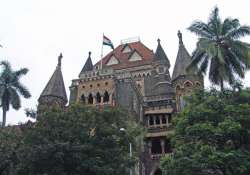Mumbai HC releases murder convict, says he was juvenile at the time of offence
Mumbai: Holding that a convict was a juvenile when he committed the offence, the Bombay High Court yesterday ordered his release from Thane Central jail where he has been serving a life term in a

Mumbai: Holding that a convict was a juvenile when he committed the offence, the Bombay High Court yesterday ordered his release from Thane Central jail where he has been serving a life term in a murder case.
Nawab Ali Dinhulhasan Sawant was convicted by a Sewri Sessions Court five years ago but he challenged his conviction in the High Court.
During the pendency of appeal, his lawyer Uday Warunjkar argued that Nawab was less than 18 years when the crime took place and hence, he must be given the benefit of the Juvenile Justice (Care and Protection of Children) Act. “We have considered the evidence on record and the sessions report stating that the appellant was a juvenile in conflict with law at the time when the offence took place,” the court said.
“In our view, the report holding that the appellant was a juvenile in conflict with the law when the offence took place, cannot be faulted,” the bench comprising Justices V K Tahilramani and A R Joshi said in a recent order. The judges noted that the appellant had already been in custody for six years. In these circumstances, the court said it was inclined to set aside the judgement dated March 25, 2008, convicting the appellant.
The appellant's case was that he was 17 years and six months old on May 10, 2003, when he committed the murder. The Bombay High Court on April 6, 2009 had directed the Principal Sessions Judge to probe whether the appellant was indeed a juvenile.
The sessions court submitted its report on June 22, 2009 in which it said the appellant was a juvenile when the murder was committed.
Noting that the sessions judge's report has not been challenged by the prosecution, the High Court allowed the appeal and acquitted the convict.
Nawab Ali Dinhulhasan Sawant was convicted by a Sewri Sessions Court five years ago but he challenged his conviction in the High Court.
During the pendency of appeal, his lawyer Uday Warunjkar argued that Nawab was less than 18 years when the crime took place and hence, he must be given the benefit of the Juvenile Justice (Care and Protection of Children) Act. “We have considered the evidence on record and the sessions report stating that the appellant was a juvenile in conflict with law at the time when the offence took place,” the court said.
“In our view, the report holding that the appellant was a juvenile in conflict with the law when the offence took place, cannot be faulted,” the bench comprising Justices V K Tahilramani and A R Joshi said in a recent order. The judges noted that the appellant had already been in custody for six years. In these circumstances, the court said it was inclined to set aside the judgement dated March 25, 2008, convicting the appellant.
The appellant's case was that he was 17 years and six months old on May 10, 2003, when he committed the murder. The Bombay High Court on April 6, 2009 had directed the Principal Sessions Judge to probe whether the appellant was indeed a juvenile.
The sessions court submitted its report on June 22, 2009 in which it said the appellant was a juvenile when the murder was committed.
Noting that the sessions judge's report has not been challenged by the prosecution, the High Court allowed the appeal and acquitted the convict.